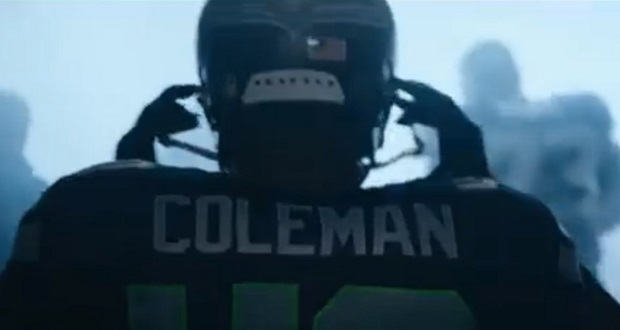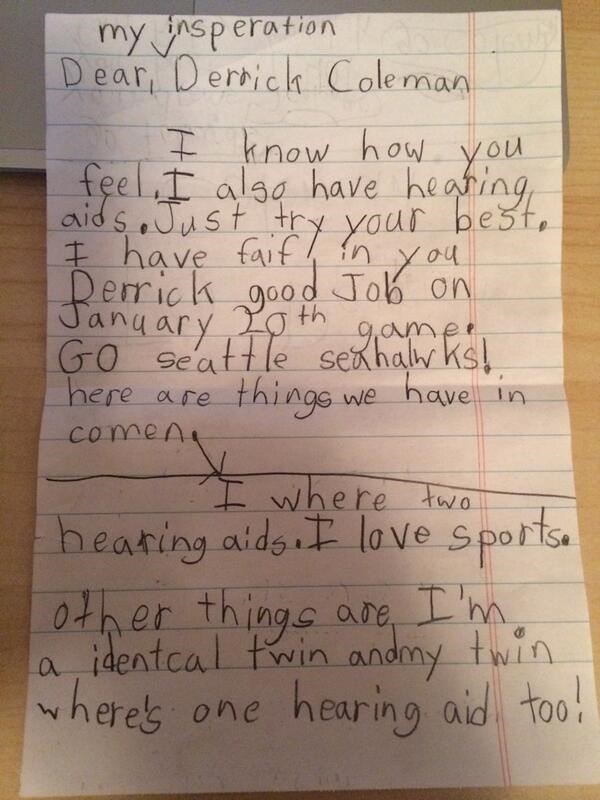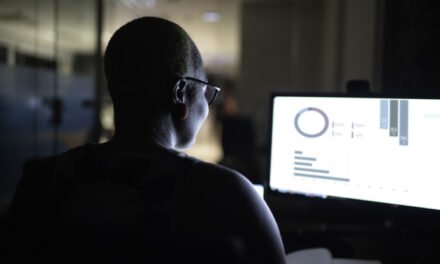
With all of the negative press rife with examples of exclusive, abusive, discriminatory, racist behaviors, it is heartwarming every now and then to hear a story that gives us hope and restores our faith in the belief that anybody can achieve anything.
I am talking about Derrick Coleman, the first hearing impaired offensive player ever to play for the NFL. Even though he had an outstanding career at UCLA, he was not selected in the 2012 draft. This year he was picked up by the Seattle Seahawks and is now Super Bowl bound.
The inspiring Duracell commercial that features Coleman, deaf since age 3, is a poignant story of hope, faith, and perseverance despite the odds. In sharing his story, he says that he was bullied as a child, told by coaches to give up but he did not. In his first game with the Seahawks, he had 3 catches for 30 yards, and he also caught a touchdown pass against the Saints in the Monday Night Football game on December 2nd.
His story was not that well known until the Duracell commercial emerged. The story has inspired millions and most notably twin girls from New Jersey who are also hearing impaired. One of the twins wrote to Coleman and their father posted it on Twitter: “I know how you feel. I also have hearing aids. Just try your best.” Coleman wrote back in a letter that appeared on Twitter: “Even though we wear hearing aids, we can still achieve our goals and dreams.”
How does it do it? He reads lips and reads them very well. What accommodations does the team have to make? Coleman gets the play call in the huddle from quarterback Russell Wilson, who doesn’t wear his mouthpiece. Wilson knows to look at Coleman and that is all that is required.
Coleman actually says that being hearing impaired is an asset because he does not hear all of the noise in the stands, he is more able to stay focused. He says he feels the vibrations but they do not affect him in the same way.
Think of the lost talent to the NFL if Coleman had listened to the naysayers? Think of the lost inspiration to the world and especially to the New Jersey twin girls, Rily and Erin Kovalcik, if Coleman has given up on his dreams because he is differently abled? The Kowalicik’s twin’s father says that he tells the girls all of the time that they are unique, not disabled. Is that the definition of diversity, unique?
This story is a great reminder to not label people as “lacking” or “less than” because of their uniqueness. It also reminds us that inclusion is about finding innovative ways to adapt to our differences to achieve team goals. It seems that the Seahawks have benefited from their inclusive practices!



















